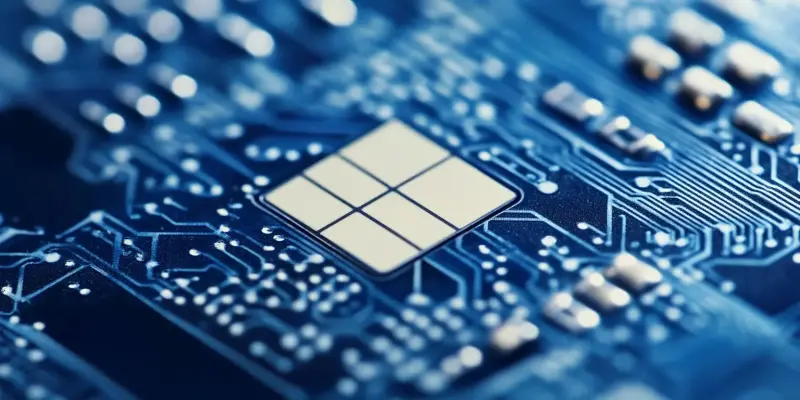The innovative use of digital collateral is significantly reshaping credit access in emerging markets, addressing a longstanding issue of accessibility to traditional financial systems. Initiatives in regions like Latin America, Africa, and Southeast Asia are leading this transformation, showing how technology can bridge the credit gap. Central to this revolution is the unique financing model developed by companies such as PayJoy, which leverage phone-locking technology to secure digital collateral and provide credit to individuals lacking traditional credit histories.
PayJoy’s Phone-Locking Technology
Pioneering a New Financing Model
Founded in 2015, PayJoy has introduced a groundbreaking model where phone-locking technology functions as collateral, enabling easier credit access for those without credit histories. If customers fail to make payments on their smartphones, the devices become temporarily unusable until payments resume. This innovative approach addresses a key challenge in emerging markets—the scarcity of credit history and capital. To date, PayJoy has managed to extend over $2 billion in loans across eight countries, serving more than 13 million customers, with half of them being new to credit.
PayJoy’s phone-locking mechanism represents a novel way to mitigate risk and protect investment while still giving individuals the chance to own essential devices. This method has dramatically transformed how credit can be leveraged in regions where traditional financial records are minimal or non-existent. By securing mobile devices as collateral, PayJoy ensures that borrowers are incentivized to pay back their loans to regain full access to their smartphones. This model opens the door not just to smartphone ownership but to broader participation in the digital economy.
Expanding Financial Inclusivity
The impact of smartphone financing extends well beyond mere device ownership. It facilitates entry into the digital economy, providing access to mobile banking, gig economy opportunities, and various digital services. According to a University of California, Berkeley study, access to PayJoy financing increases customer income by an average of 6%. The model notably benefits women entrepreneurs and informal workers—47% of PayJoy’s customers in Mexico are women, with 92% reporting that this form of smartphone financing helps maintain their employment or business.
This financing method has proven especially beneficial in empowering women, who often face additional barriers in accessing traditional credit. With mobile phones essential for many business operations and connections, enabling women to obtain and maintain these devices boosts their economic potential. PayJoy’s model is also extending to other demographics, fostering financial inclusion on a broader scale and supporting individuals in their journey toward economic independence and growth.
Beyond Smartphones
E-Bikes: A New Frontier
James Downer’s startup, Guajira Bikes, in Bogotá, Colombia, demonstrates another compelling application of digital collateral. His company manufactures e-bikes that can be remotely disabled if payments are missed, catering primarily to Venezuelan migrants and gig economy workers who typically lack credit histories. This model helps these individuals generate income through delivery services and other gig economy jobs, offering a means to financial stability that traditional credit systems have often excluded them from.
The success of Guajira Bikes showcases how the principles of digital collateral can be adapted to various assets beyond smartphones. By introducing e-bikes as collateral, the company extends the opportunities for credit access, providing a vital tool for income generation. This approach underscores the adaptability of digital collateral models and their potential to transform financial landscapes in multiple sectors. As more companies adopt these principles, the reach and impact of this financing model could grow exponentially.
Broader Applications and Future Growth
The success of these approaches has inspired similar innovations across sectors and regions, applying the principle of digital collateral to finance various assets. Beyond smartphones and e-bikes, there is potential for this model to extend to other high-value, essential items that can be digitally locked or disabled. As these models gain traction, they set a precedent for how technology can resolve the longstanding issue of credit accessibility in emerging markets, fostering financial inclusivity and economic mobility.
With PayJoy’s annual revenue nearing $450 million and its expanding range of financial services, the company aims to compete with established neobanks like Nubank and Mercado Libre. As smartphone penetration continues to grow, this tech-enabled lending method is poised to bridge the gap between informal and formal financial systems. The future holds promising potential for further developments and more inclusive financial ecosystems benefiting millions in emerging markets.
Conclusion
The Path Forward
The innovative use of digital collateral is dramatically reshaping credit access in emerging markets, tackling the long-standing issue of limited access to traditional financial systems. Regions such as Latin America, Africa, and Southeast Asia are at the forefront of this transformation, exemplifying how technology can bridge the credit gap for those underserved by conventional finance. A pivotal aspect of this revolution is the novel financing model introduced by companies like PayJoy, which employ phone-locking technology to secure digital collateral. This innovative model allows individuals who lack traditional credit histories to obtain credit, as their digital devices serve as collateral. By locking and unlocking phones based on payment behavior, these companies reduce the risk of default and thus enable a wider range of people to access financial services. This approach not only broadens credit availability but also fosters greater financial inclusion, helping to uplift economies in these developing regions. Overall, leveraging digital collateral is proving to be a game-changer in making credit accessible to all.

